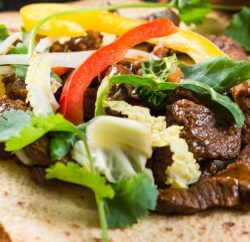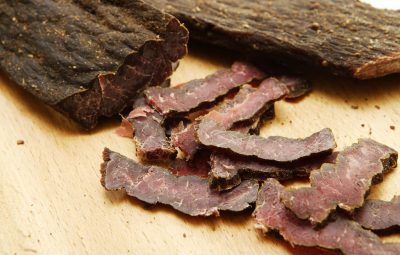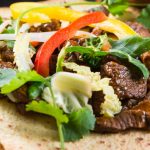
A vegetarian diet consists solely of plant and in some cases dairy products but completely excludes any meat from it. Vegetarian diets go back as far as 700 B.C and offer a nutritionally balanced alternate lifestyle without meat. They are also medically recommended for patients suffering from certain issues as well as for curbing obesity. If you are in Australia you can get the vegetarian meal delivered at your door step from FoodForYou.com.au.
Types of Vegetarianism
Following are the main 4 types of vegetarians:
Lacto-ovo Vegetarians: Vegetarians who eat dairy and eggs but exclude meat from their diet.
Lacto Vegetarians: Vegetarians who eat only dairy and exclude meat as well as eggs from their diet.
Ovo Vegetarians: Vegetarians who eat only eggs but exclude all other animal-derived products and meat.
Vegans: Strict vegetarians who exclude all forms of animal based products from their diet.
8 Ways to Nutritionally Balance Vegetarian Diets
People often confuse vegetarian diet to be lacking nutritionally, though this is only caused by misinformation and lack of knowledge, leading to an unbalanced diet. Following 8 ways will not only assist in planning a balance diet but also enhance its dietary values:
- Modifying Favorite Foods
Instead of simply ditching favorite foods, change their ingredients to make them vegetarian. For example, tofu steaks, veggie burgers, vegetable pizzas and stir-fry entirely composed of vegetables are excellent vegetarian adaptations of traditional meals.
- Maintaining Protein Intake
While meat and animal derivatives are rich sources of proteins, vegetarian diets can also be modified to complete daily dietary values without any medical issues. Sources such as beans, lentils, dry fruits, nuts and soy derivatives e.g. tempeh, tofu, etc. are the perfect addition for a protein infused diet.
- Cut down on Processed Snacks
Processed snacks are high in carbohydrates and fats, which makes them an unsuitable option for sating sweet tooth of even normal diets. Dry fruits and nuts are the perfect choice for snacks, since they are high in good saturated fats and proteins.
- Drink Water
The human body is comprised of approximately 60 percent water and maintaining a healthy equilibrium is essential for health. The stimuli for thirst is often mistaken for hunger, which results in overeating and ultimately fat deposits in the form of adipose tissue. Water is an essential ingredient for digestion and proper absorption of essential nutrients from digestive tract and transport in bloodstream.
- Calcium for the Bones
While milk and dairy products are excellent sources of calcium, certain vegetarian diets exclude them completely. In these cases, calcium can be obtained from sources such as calcium sulphate infused tofu, soymilk, various cereals and green, leafy vegetables.
- Do not Neglect Lentils and Beans
Beans and lentils are rich sources of plant proteins as well as carbohydrates. Foods such as hummus, pea soup, bean salads and chili are tasty vegetarian meals rich in nutrition.
- Alternating for a Vegetarian Meal
Choose vegetarian alternatives for lower cholesterol and calories. Instead of steaks, choose tofu and for breakfast, opt for wholegrain cereals or even falafel.
- Don’t Forget Vitamin B12
Because Vitamin B12 occurs only in animal based products, vegetarians should always be on the lookout for food sources which fulfill their dietary requirements. Foods such as fortified tofu and soymilk can be integrated in diet to prevent vitamin B12 deficiency.
Healthy Vegetarianism
The majority of cases in which vegetarians experience insufficient dietary intake can be attributed to ill-planned diets and misinformation. By keeping these 8 guidelines in consideration, a balanced, wholesome vegetarian diet can be planned with complete nutritional intake.

















